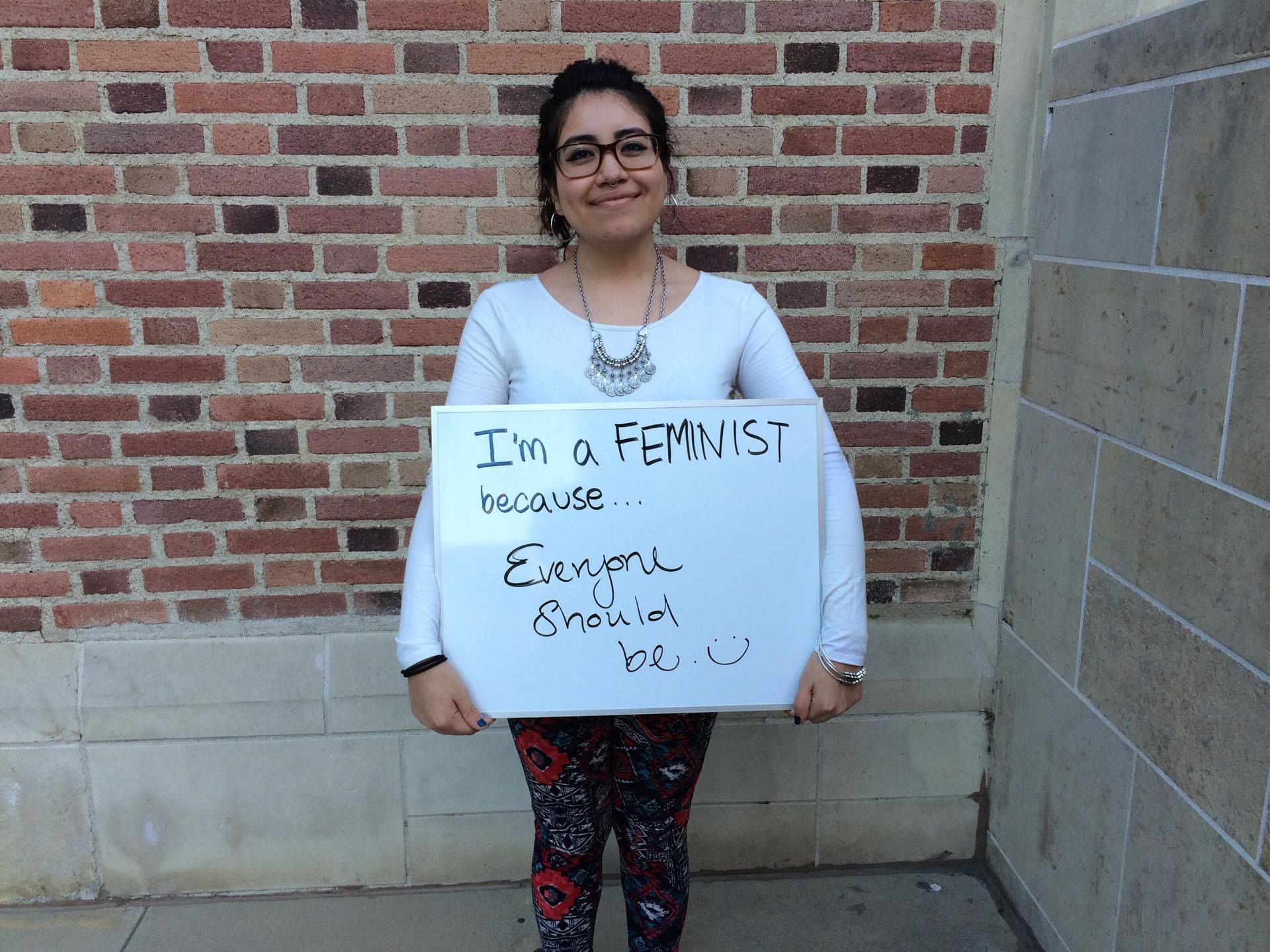Featured UCLA Feminist: Estefanía Salgado

Image by Laura Jue.
“It’s always great to awaken from being ignorant, but at the same time it’s kind of that weight that comes with knowledge.”
Estefanía Salgado, a second-year theater major, experienced her feminist awakening in high school, when she realized that not everyone knew what feminism really meant. She heard the president of her theater club describe feminism as “when somebody tries to open a door for a girl and she’s just like, ‘No, I can do it.’”
“That’s not feminism,” Estefanía said. “That’s wrong.’”
With this realization, “it’s kind of like now you know how the world works, and that can be kind of depressing.” But overall, she believes that feminism has had a positive impact on her life.
To Estefanía, feminism means that all genders have to be equal. “It’s very much social, political, [and] economic,” meaning unequal pay, discouraging women from positions of power, and objectification of women’s bodies has to end.
She said that equality means women are paid the same as men and are not held back from positions of power, or looked down on when they achieve those positions of power. She wants to be able to walk down the street and “not be thinking that it’s normal for guys to ogle my body.” Society has to stop holding women up to certain beauty standards which, if not met, make them undesirable.
She believes that the media has a lot to do with it. Feminism is often portrayed as a bad word, so people opt for the subtler “equalist.” But, Estefanía says, “it means the same thing.”
“I hope the media, being such a powerful medium, starts to pick up on what the public has already started to pick up on.”




